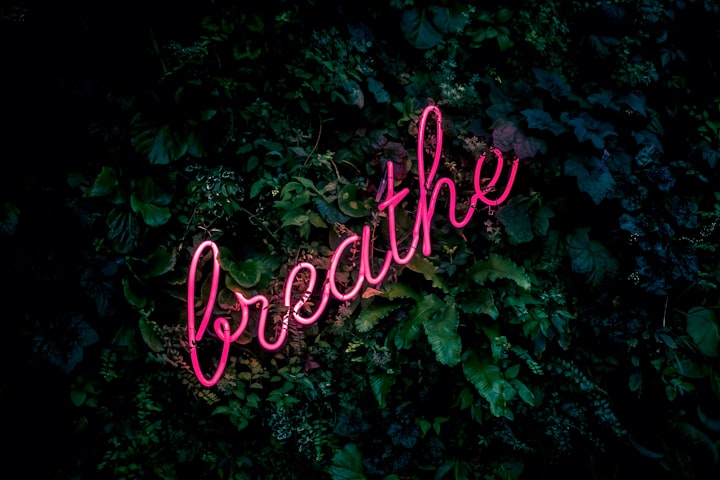Breathing Is An Indirect Way To The Vagus Nerve
The respiratory pattern can stimulate our body’s potential anti-stress system.

Your body responds to depression and stress in various much-planned manners. Pulse rate and blood pressure accelerate, muscles tense, digestion eases back, and breathing becomes cut and quick.
The entirety of this happens in light of the fact that your mind has enlisted the presence of some kind of danger. Regardless of whether physical or mental, this danger triggers a stream (or a spout) of adrenaline, noradrenaline, and other pressure-related chemicals. These compound couriers shift the movement of your anxious and invulnerable frameworks in manners that are intended to assist you with escaping risk or climate some sort of difficulty or encounter.
None of this will in general be an issue on the off chance that it occurs with some restraint. Your body is intended to encounter a lot of pressure-related actuation, and there's some evidence that short episodes of stress may supportively hone your center, reinforce your memory, and give other brief advantages without doing any enduring harm. (On the off chance that the pressure reaction was completely terrible, your body wouldn't draw in it so promptly.)
In case depression/stress is too extreme or too tenacious, it can turn out badly.
Persistent depression advances second rate, foundational irritation, and it's related with an expanded danger for basically every one of the significant problems of the psyche and body — from nervousness and sadness to coronary illness. Pick an ailment, any ailment, and exploration has most likely shown that persistent depression adds to its turn of events or aggravates it.
As researchers have examined the many covering chances related to persistent stress , they've likewise distinguished accommodating techniques for stress alleviation or moderation. That work has over and over tracked down that Eastern wellbeing or scrutinizing rehearses, like meditation, yoga, and judo — just as stripped-down, Westernized variants of these exercises, like care and reformist muscle unwinding — produce powerful enemy of pressure benefits.
While every one of these practices is remarkable, a solitary binding together element integrates them all: the breath.
"Quiet and controlled breathing rapidly and drastically snuffs out depressionby invigorating the vagus nerve"
For a 2018 paper in Boondocks in Human Neuroscience, specialists from Germany and the Netherlands investigated the role of "respiratory discipline" — essentially, moderate and estimated breathing — in the administration of stress.
In that paper, they presented a convincing fact that quiet and controlled breathing rapidly and drastically snuffs out depression by stimulating the vagus nerve.
The vagus nerve, which researchers have nicknamed the body's "incredible wandering defender," is really a long, expanding organization of nerves that reaches out from your cerebrum down into your body, where it speaks with a large number of your organs and frameworks.
Much about the vagus nerve stays a secret, yet its action is firmly connected to conditions of rest and unwinding.
While stress and its specialist battle or flight reaction turn on your autonomic sensory system, the vagus nerve initiates the parasympathetic sensory system, which hoses autonomic action and all its hazardous impacts — including irritation.
"The vagal nerve, as a proponent of the parasympathetic sensory system (PNS), is the great up-and-comer in clarifying the impacts of pondering practices on wellbeing, emotional wellness, and comprehension, and cognition" the Frontier study group composed.
Researchers are enlightened to the force of the vagus nerve. In a clinical setting, vagus nerve incitement will in general include tenderly stunning the nerve by means of anodes joined to an individual's skin or embedded in the neck.
Vagus nerve incitement is as of now used to treat a scope of conditions. As indicated by a 2018 review in the Diary of Fiery Exploration, this treatment is FDA endorsed for epilepsy and sorrow, and it's inexorably utilized as a treatment for inflammation connected problems of the mind and body, everything from lung illness and rheumatoid joint pain to Alzheimer's and diabetes.
It might appear to be implausible that something as straightforward (and sans cost) as estimated breathing could in like manner animate the vagus nerve and produce comparative health advantages. In any case, to an ever-increasing extent, proof backs this hypothesis.
In their Outskirts paper, the European specialists clarify that a wide range of breathing activities appear to be helpful. Diaphragmatic ("belly") breathing, box breathing, and different strategies all switch on the vagus nerve and decrease pressure. Yet, summarizing the exploration to date, they say that sluggish, quiet breathing — something on the request for six complete breaths each moment, with an accentuation on long and full exhalations — is by all accounts best.
The capacity of the breath to improve us is "a particularly unexceptional reality, so doubtlessly discernible" that we as a whole will, in general, overlook it, they compose. Yet, the more we find out about the breath and its relationship with the vagus nerve, the more it appears to be an antitoxin to a significant number of our most squeezing medical issues.
About the Creator
Better Brain
Exploring the mysteries of neuroscience.






Comments
There are no comments for this story
Be the first to respond and start the conversation.